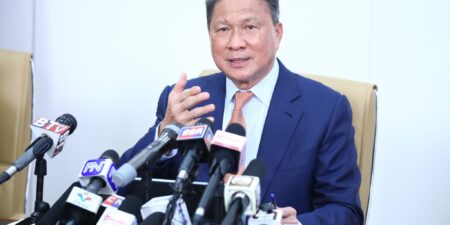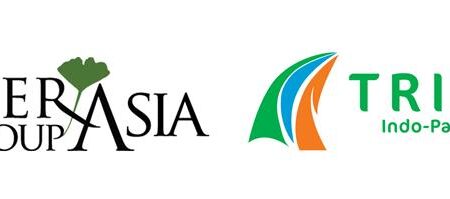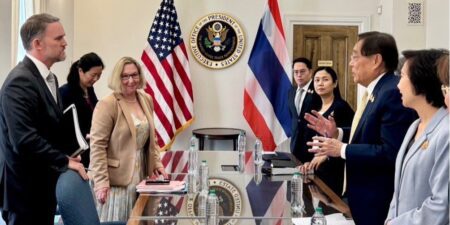WHAT YOU NEED TO KNOW
- Across Southeast Asia, there is a growing emphasis on extended producer responsibility (EPR) regulations and plastic taxes. These measures aim to combat plastic waste and encourage sustainable packaging practices.
- In recent years, Asian countries have increasingly focused on regulating nutritional labeling and packaging for prepackaged foods, with a significant spike in governance and regulatory changes. This movement, primarily motivated by sustainability goals, is expected to continue influencing trends into 2024 and beyond.
- The World Health Organization has urged countries to increase taxes on alcohol and sugary sweetened beverages. In response, major Indo- Pacific countries have initiated various strategies to reduce sugar consumption, with notable progress in sugar governance.
ON THE HORIZON
- The EU Deforestation Regulation (EUDR) is expected to come into effect starting December 30, before the 18-month transition period ends. Enforcement is expected to significantly impact trade, particularly for commodities like palm oil, coffee and cocoa. To comply with the new regulation, exporters must demonstrate the traceability of their products from the market entry point to the final consumer and ensure that their products are not linked to forest degradation.
- The Global Plastic Treaty is a legally binding U.N. initiative that aims to tackle plastic pollution from production to disposal by the end of 2024. The treaty includes mandatory and voluntary measures, with a focus on the marine environment. The intergovernmental negotiating committee has held four sessions, with the final round of negotiations set for November in Busan, Korea, where an international agreement is expected to be signed.
Sector Overview and Forecast
Macrotrend Monitor
Ethical Consumerism and Healthier Lifestyles Drive Policy Change
BGA is closely watching several policy trends in the Indo-Pacific’s consumer goods sector this year. First, there is a notable shift toward mitigating plastic waste through EPR regulations and plastic taxes. Indonesia, Malaysia, Vietnam and Thailand are at the forefront of this change. Indonesia, targeting a 30 percent reduction in plastic use by 2030, is contemplating an excise tax on multilayer plastic; Malaysia, Vietnam and Thailand are actively developing their own EPR frameworks. Similarly, China, Korea and the Philippines have implemented taxes on single-use plastics. Vietnam, Thailand and Indonesia have sought substantial reductions in marine litter and packaging waste, with targets set for the coming years.
Nutritional labeling and packaging regulations are gaining traction across the region. The Philippines recently updated standards for displaying sodium and caloric values, Vietnam has shifted to mandatory nutritional labeling and Korea has standardized country-of-origin information and specific nutritional details, mandating online registration. Taiwan’s focus on carbonated beverages and stringent labeling requirements, along with China’s expanding packaging regulations, indicate a greater commitment to health and nutrition, influenced by global trends. Meanwhile, the region has witnessed the adoption of sugar excise taxes, following the WHO’s most recent recommendations to combat health issues associated with sugary beverages.
The Philippines’ TRAIN Law has seen positive results in reducing sugar-sweetened beverage consumption. Australia’s voluntary sugar-reduction pledge, China’s guidelines to reduce sugar intake and Singapore’s Nutri-Grade labeling system for nonalcoholic beverages highlight different approaches to address this issue. Since 2018, Thailand has been considering a salt tax to reduce sodium consumption and promote healthier diets. The tax would be levied on processed foods with high sodium content, such as canned foods, frozen products, instant noodles, snacks and seasoning powder. It would increase proportionally to the amount of sodium used, similar to the tax on sugary beverages. Taken together, these suggest a growing consumer preference for healthier, low- or no-sugar products in the region.
In parallel, concerns have grown about artificial sweeteners, which had once been deemed a healthy substitute for sugar. The WHO classified aspartame as possibly carcinogenic, urging manufacturers to reduce overall sweetness rather than rely heavily on sweeteners. Responses to the assessments vary globally, with some countries defending aspartame’s safety while others, like India, plan comprehensive studies on its effects. Malaysia, the Philippines, Singapore and Vietnam already have regulations limiting aspartame levels, while the U.S. Food and Drug Administration has defended the substance’s safety.
Ethical and sustainable supply chain developments are also gaining momentum, influenced partly by the EUDR. This regulation, which takes effect in December, will significantly impact global trade, particularly for products tied to deforestation. The U.S. Uyghur Forced Labor Prevention Act has led to increased scrutiny of labor standards in supply chains, with China and Vietnam being notable examples. Furthermore, sustainability reporting is becoming mandatory in several Indo-Pacific countries, including China, Hong Kong, Japan, Singapore and Korea. These changes reflect a global shift toward greater transparency and accountability in corporate sustainability practices.
Subsector Highlight
Extended Producer Responsibility
EPR initiatives are gaining momentum across the Indo-Pacific as countries recognize the urgent need to tackle environmental issues such as plastic pollution and electronic waste. However, the implementation and effectiveness of EPR policies vary widely across the region, with some countries leading the way while others are still in the early stages of development. Moving forward, there is a noticeable trend toward adopting more comprehensive EPR frameworks and stringent regulations to encourage sustainable waste management and conserve resources.
EPR in the Indo-Pacific encompasses various measures, including taxes and levies, as market-based instruments to regulate plastic consumption and production. These policies mandate that companies responsible for producing plastic products bear the costs associated with their collection, sorting and recycling after use.
Australia, Indonesia, Malaysia, the Philippines, Thailand and Vietnam are pursuing diverse approaches to EPR regulations. While Australia has initiated container deposit schemes and Indonesia has introduced nascent EPR-like regulations, Malaysia and Thailand are gearing up for significant enhancements to their EPR policies by 2026 and 2027, respectively, indicating a regional shift toward more robust regulatory frameworks. The Philippines stands out as a front-runner, demonstrating a proactive stance toward waste management since its EPR Act was fully enforced in 2022. Vietnam has also taken steps by instituting EPR regulations through Decree No. 08/2022/ND-CP, which mandates contributions to the environmental protection funds for entities dealing with challenging-to-recycle materials.
Several countries in the region have imposed taxes to curb single-use plastic consumption, reflecting concerted efforts to address plastic waste. Initiatives such as Brunei’s “No Plastic Bag Everyday” and Thailand’s ban on single-use plastics highlight the region’s commitment to waste reduction. Singapore has implemented comprehensive legislative measures, such as mandatory reporting frameworks, and nationwide campaigns to achieve zero-waste goals.
Despite the increasing demand for biodegradable and compostable packaging, infrastructure limitations pose challenges to the effective collection, recycling and the composting of biodegradable materials across the region. The Indo-Pacific nevertheless presents significant potential for the bioplastics market, driven by strong demand from the packaging sector. Government policies in Japan, Malaysia and Thailand play a crucial role in promoting the commercialization of bioplastics and advancing sustainable development goals. Japan’s systematic approach, exemplified by its Resource Circulation Strategy for Plastics and Roadmap for Bioplastics Introduction, serves as a comprehensive framework for industry stakeholders.
The Indo-Pacific is at a critical juncture in addressing waste management challenges through EPR schemes, plastic taxation and the promotion of bioplastics. Collaborative efforts between governments, industries and civil society are essential to foster a circular economy and mitigate the environmental impact of plastic pollution.
We will continue to keep you updated on developments in the consumer packaged goods (CPG) sector as they occur. If you have comments or questions, please contact BGA Director Anh Hoang at ahoang@bowergroupasia.com.
Best regards,
BGA CPG Team


























